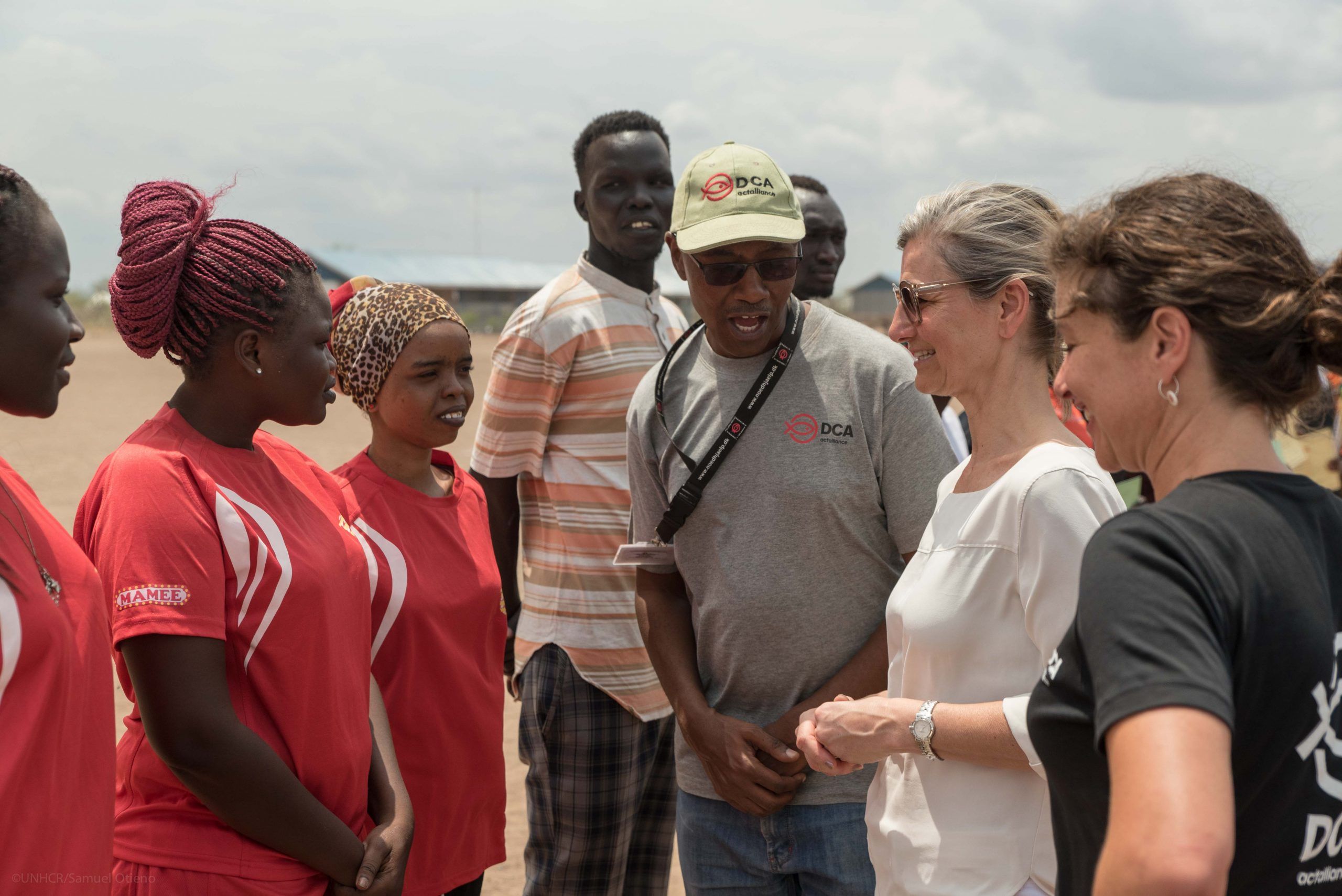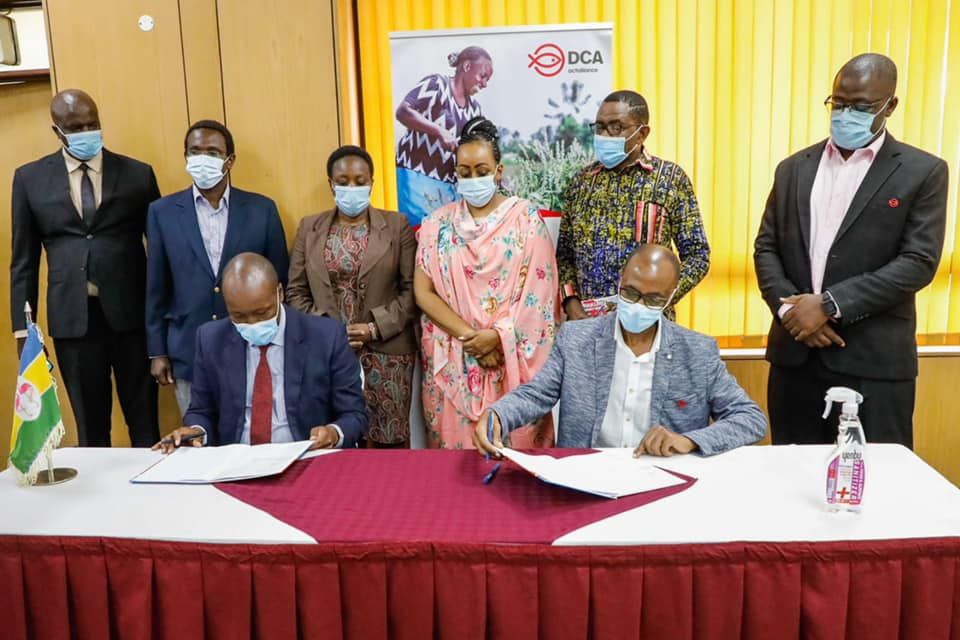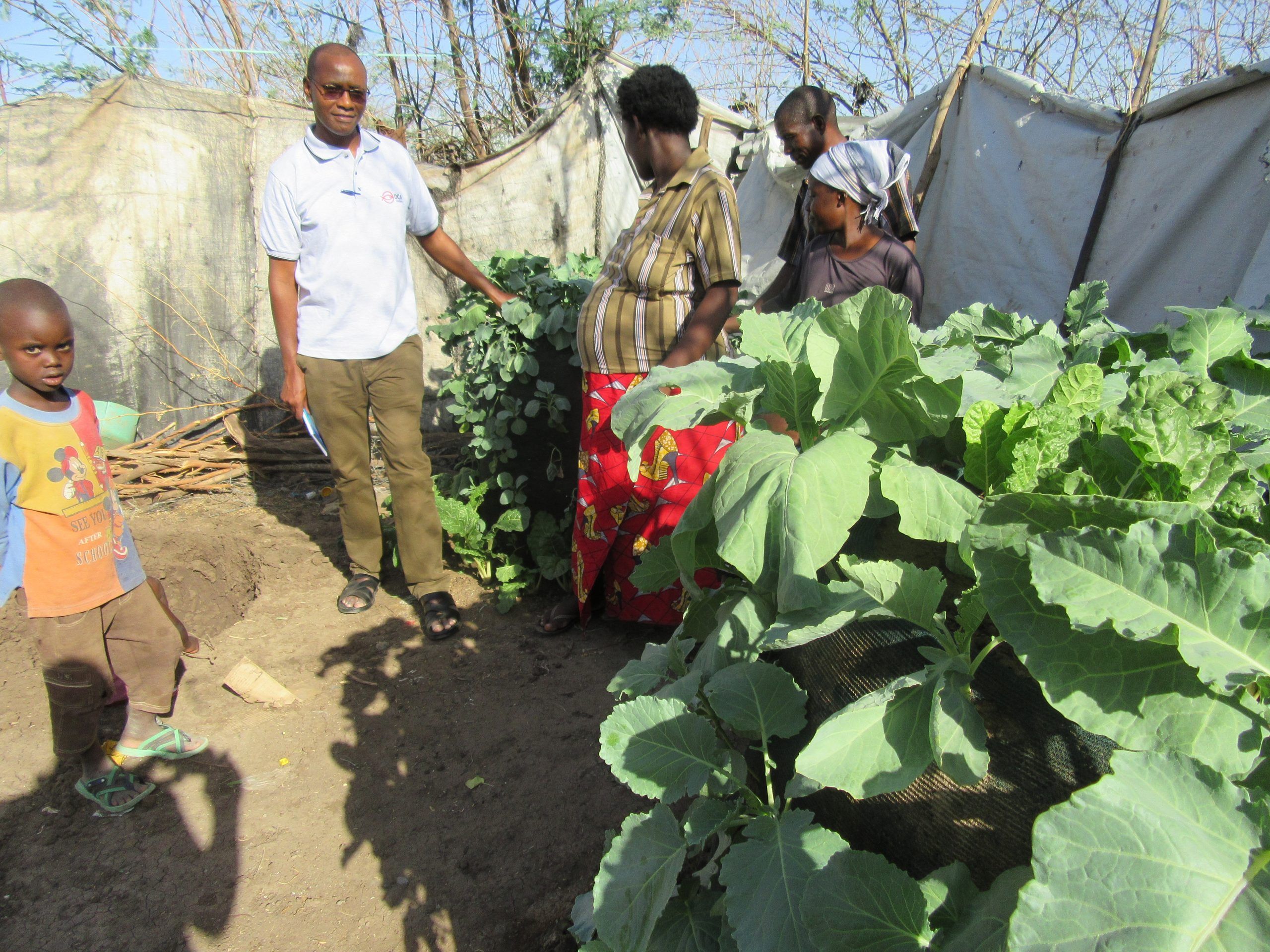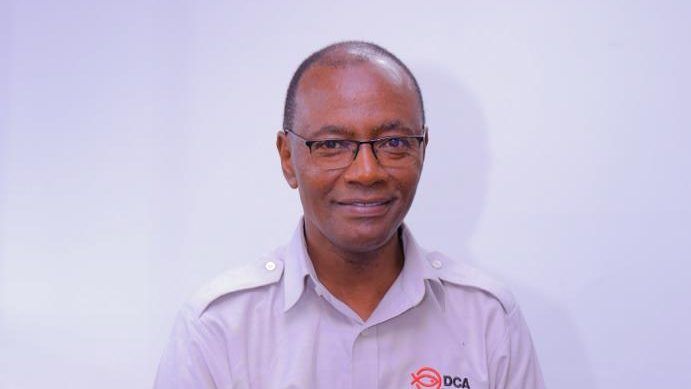Patrick Kibuku joined DCA in 2005 and has been the Program Coordinator (renamed ‘Head of Programme’ in 2015) at DanChurchAid Kenya since 2009. Here, he shares an inside look at the evolution of DCA’s work in Kenya and his own journey as a humanitarian worker: as he puts it, “we are somehow joined at the hip.”
He also delves into his perspective on a purpose-driven career, leadership, dedication to the long game, and sustaining focus year after year.
Fair warning — this makes for a long read, but it offers a unique opportunity to pick the brain of a humanitarian/development specialist with extensive NGO programming experience at the field practitioner & senior management levels.
With hopes that everyone will find plenty of wisdom in this accounting of milestones on a journey with plenty of roads still ahead, let’s dive in.
South Sudan – the beginning
“South Sudan was the initial shaping of my NGO work. That was six years before I joined DCA. It was during the war, and I found myself in the remotest parts of South Sudan. Having grown up in a stable country and around the Nairobi area where living conditions are high, going into a warzone was quite daring and a very steep learning curve for me. Fortunately, I had gone through the then compulsory pre-university paramilitary training program at the National Youth Service before joining university, which hardened me socially and emotionally.
I worked in Kenya for eight years as an agriculture teacher, then as a high school principal before going to South Sudan to work on a four-year development project focused on the sustainability of high school education in emergencies. I implemented the sustainability part of the project through managing production in a farm as an agriculturalist. The project shaped my master’s degree.”
Joining DCA’s South Sudan and Kenya office
“After the project ended, I joined DCA as a project officer in 2005. It was quite a unique funding by Danida called ‘Region of Origin’, implemented in Kakuma in Kenya and South Sudan. We were trying to identify and test solutions to displacement at the grassroots before they escalate to the global level, leading to forced migration. We were based in Nairobi with frequent travel to South Sudan. After the 2005 Comprehensive Peace Agreement, an office was opened in Juba. The bulk of the workforce was in Juba, but we maintained a presence in Nairobi.
The office catered for South Sudan, Kenya, and Djibouti but then we wound up the projects in Djibouti. We worked in both countries and implemented together until independence came.
Having started work in South Sudan during the war, gone for years and now there was peace, I did not find any more motivation to continue. I felt independence was what I was looking for. I negotiated with DCA so that I could be handling Kenya projects and grow Kenya into a bigger programme. My wish was granted and one of the caveats to that approval was that I must grow Kenya.”

Ensuring Kenya remained relevant and on the agenda
“South Sudan was a complex programme and had a lot of funding needs and issues. I worked hard to keep Kenya a priority in the engagement. The regional office now had two Heads of Programme; one for South Sudan and me representing Kenya.
The first Kenya programme expansion outside Turkana County was with Anglican Development Services – North Rift Region (ADS NRR) in West Pokot. We also started direct implementation in Turkana.”
A turning point for DCA Kenya
“Moving into West Pokot changed perceptions of DCA as an actor that goes beyond the refugee camp. Also, direct implementation made us be perceived as an actor that goes beyond funding because many organizations considered us as a donor.
That was the biggest thing we had to overcome, and we are now perceived as both a serious implementer and a champion and supporter of local actors. I cannot attribute that to myself because it also hugely involved a team of very dedicated DCA staff at the country office and the headquarters in Copenhagen.”

Establishing a niche through innovation
“We are recognized in Kakuma as an innovative organisation that uniquely does direct implementation. We initiated a blended learning approach to business and entrepreneurship skills training for youth in the Kakuma refugee camp and went into insect farming.
The breakthrough was in Nakuru where we went into creative partnerships with various private sector actors on youth employment, green growth, and value chain development.
The donor, the stakeholders, and the county government hold us in very high regard because we come up with creative solutions to some of the challenges they face.”
I feel very proud of the Nakuru programme. If I leave DCA today, I will leave proud and happy.
“One thing that has made me stay in DCA for long is the deep-seated job satisfaction derived from space to grow and actualize myself and space to innovate. I like new challenges and new things. There is always something innovative and unique happening at DCA Kenya that keeps me thinking and ticking.”
The importance of faith
“Also, what DCA stands for and my values resonate very well. I believe in service. Service to mankind and DCA does that. I believe in giving something a theological interpretation. I am a faith person, and everything needs to have faith meaning to me. When DCA takes service from a faith perspective, it resonates very well with me.
The fact that DCA also gives staff space to develop professionally through training has also been a driver for me. The staff welfare approach is very responsive and inclusive.”

DCA tests ideas fast. We develop ideas fast
“The limit is your imagination. DCA will listen and give you space to prove yourself and the innovative idea. Of course, resources are limited so not all ideas are supported but all have an equal opportunity of being considered, developed and funded.
I want to package something, be it a methodology or approach and develop it until it is accepted and taken as a best practice in programming. That would be more rewarding to me than a Ph.D.
I was very keen on the DCA Youth Enterprise Fund, aiming to finance youth entrepreneurs to grow and expand their enterprises because it is unique, adaptive, and inclusive. I believe in solutions that factor in the local context.
If you localize properly, listen to the needs of the people, and scratch where there is itching, you are likely to do it right.”
Space to grow and innovate an important personal driver
“It is the purpose that has driven me – I fear to lose purpose in what I do. When I was in Sudan my purpose was to build a better life for the people there in their quest towards self-determination. When they got independence and everything was in their hands, I started losing that purpose. I requested to come back to Kenya.
Now, if someone was to take away the space to grow and innovate for me, I don’t think I can last long in DCA. That is what I fear. I guard it zealously and carefully.”
Life outside DCA
“I garden a lot. I like beautiful spaces and well taken care of environments like flowers, landscaping, and trees. That makes me happy. I love being in water, but floating remains a challenge making my swimming mainly to be under water!
I offer leadership in my local church and in community initiatives started by and with my peers. Not many people know I am that religious as it is not too obvious in my day to day official program work.
I always get a leadership role be it in family gatherings, friends’ meetups and such. Most people say they feel safer and more confident approaching me. I could be approachable and maybe I am empathetic. I am open to seeing where they are coming from.
I take time to analyse the context and situation before talking. Sometimes people would wish that I talk earlier. People solicit my comments before I am ready to give them because I prefer analysing the details before I make comments.”
The next 100 years for DCA – and for Patrick Kibuku
“Going forward, I envision a DCA that is fit for purpose taking the lead and breaking new programming grounds to offer impactful solutions to local and global humanitarian and development problems.
The success factors will be leveraged and secured from DCA’s culture of cutting-edge innovations, creative partnerships including localisation and rights-based programming.
As for myself, I look forward to heading a country office at some point or taking up a global position.”

